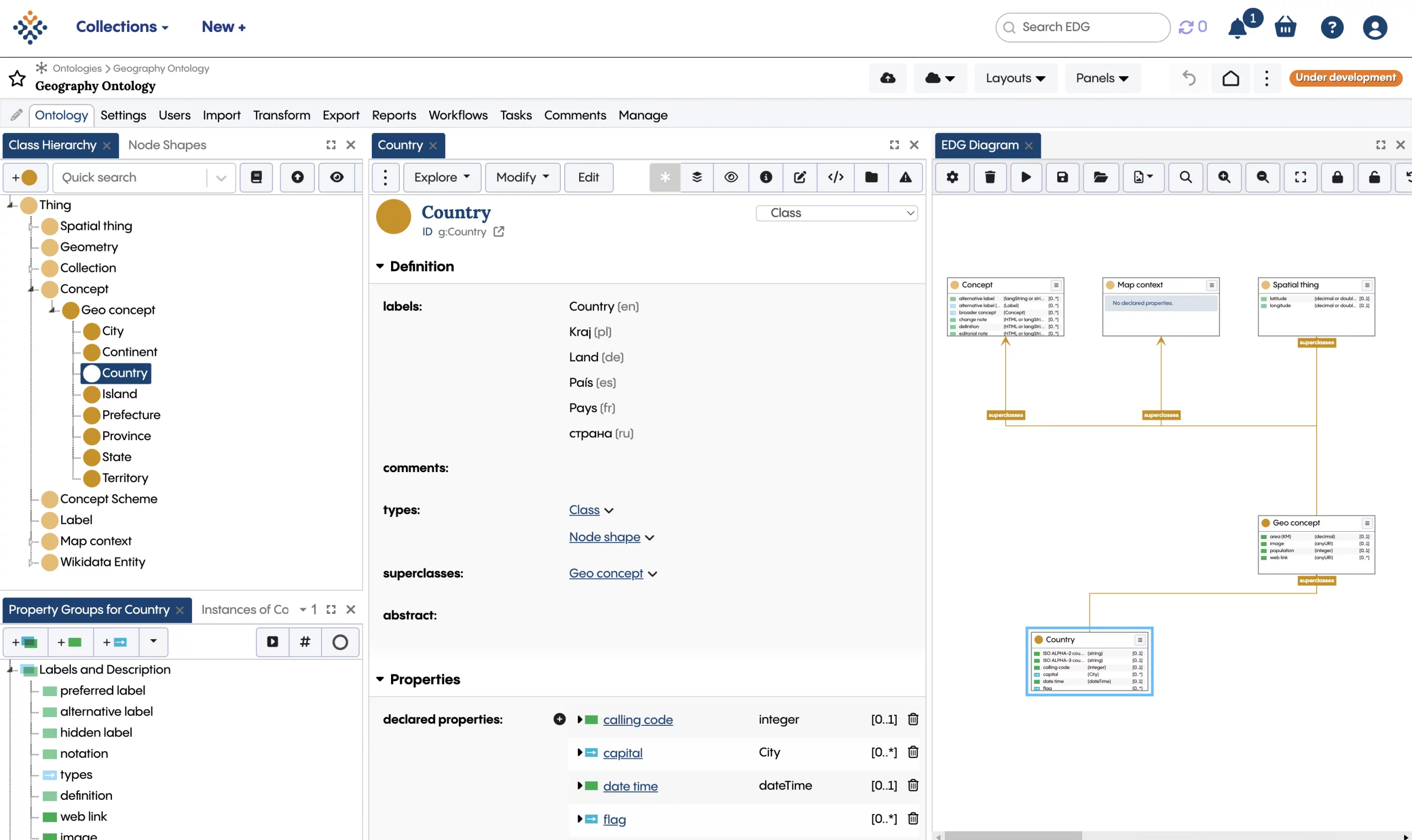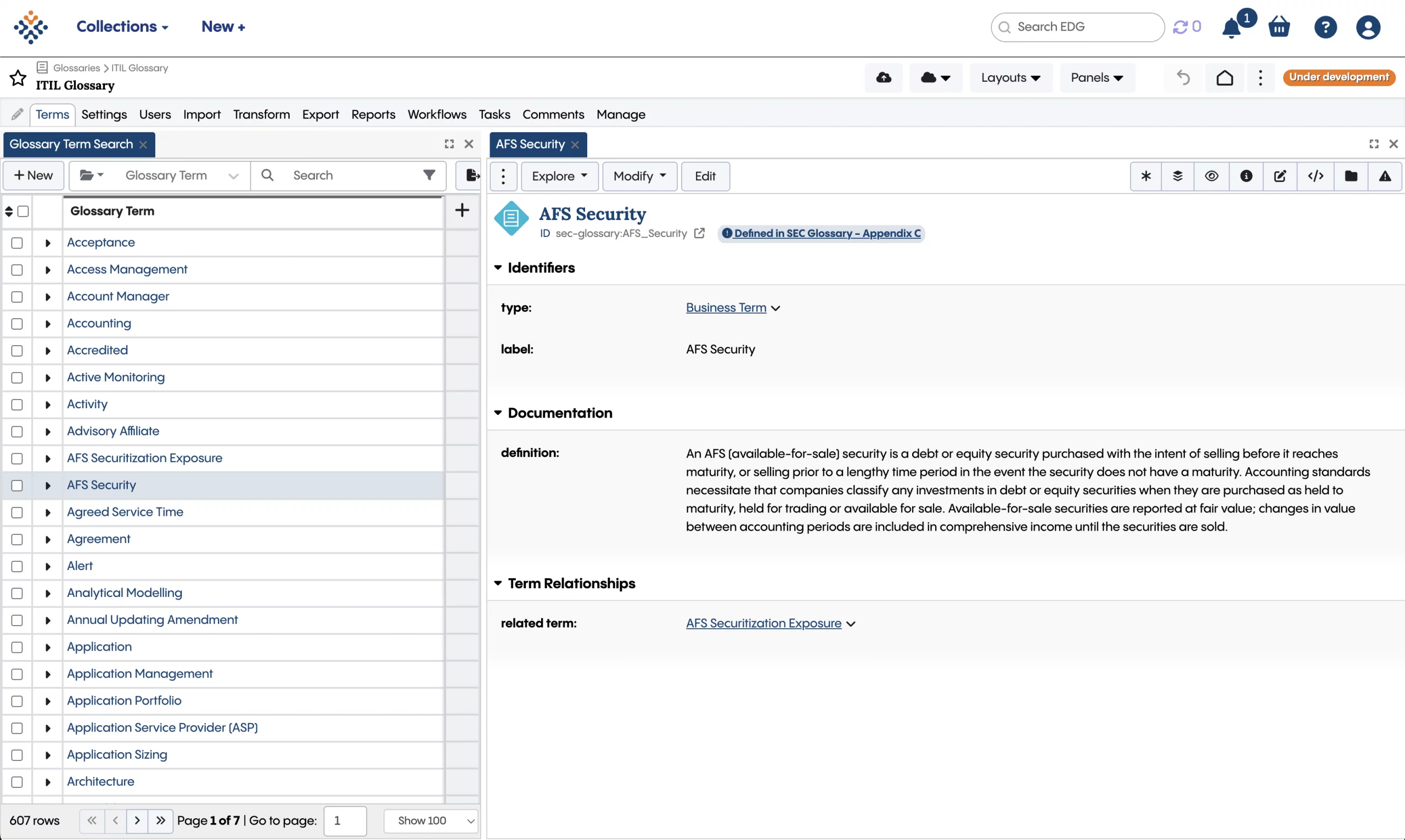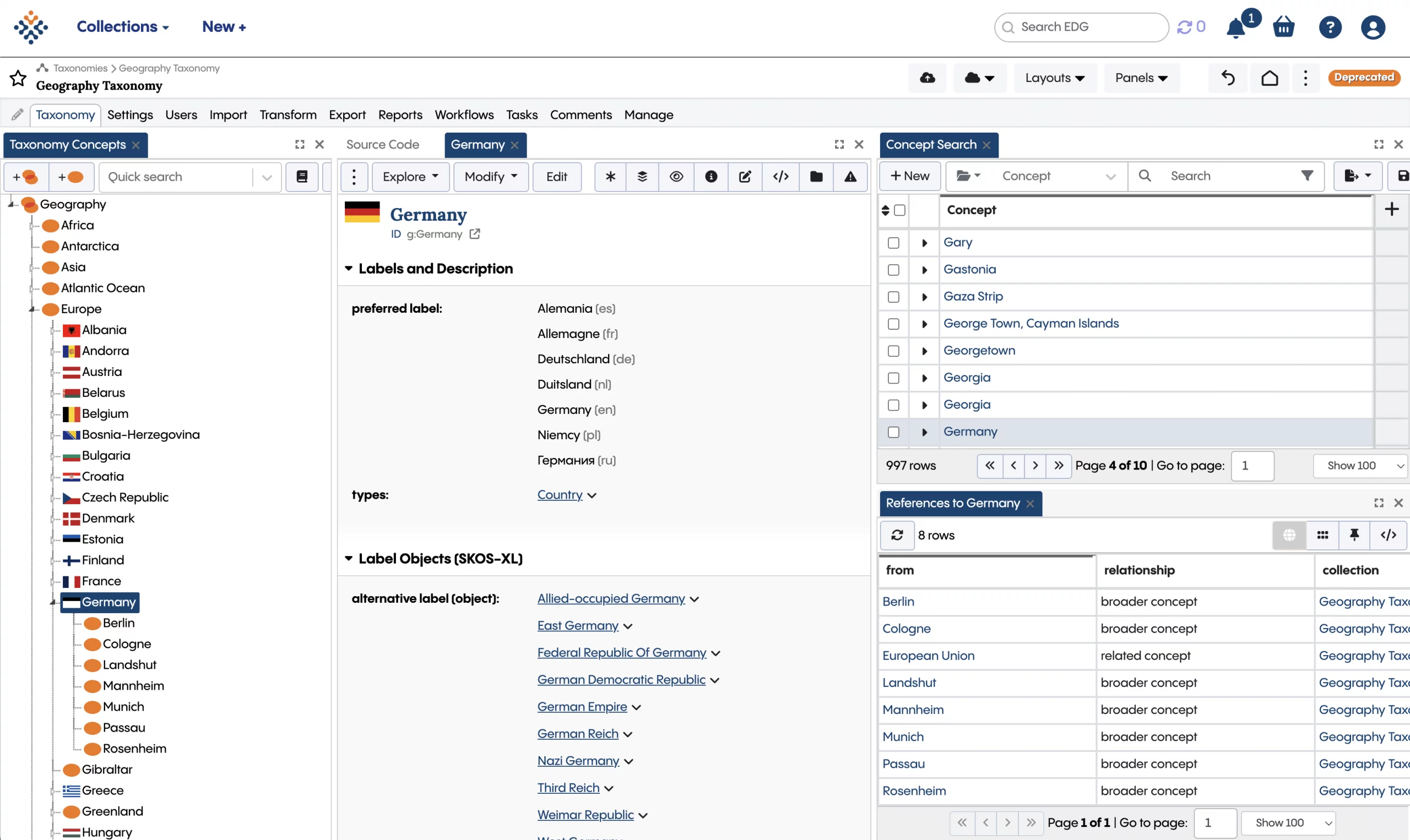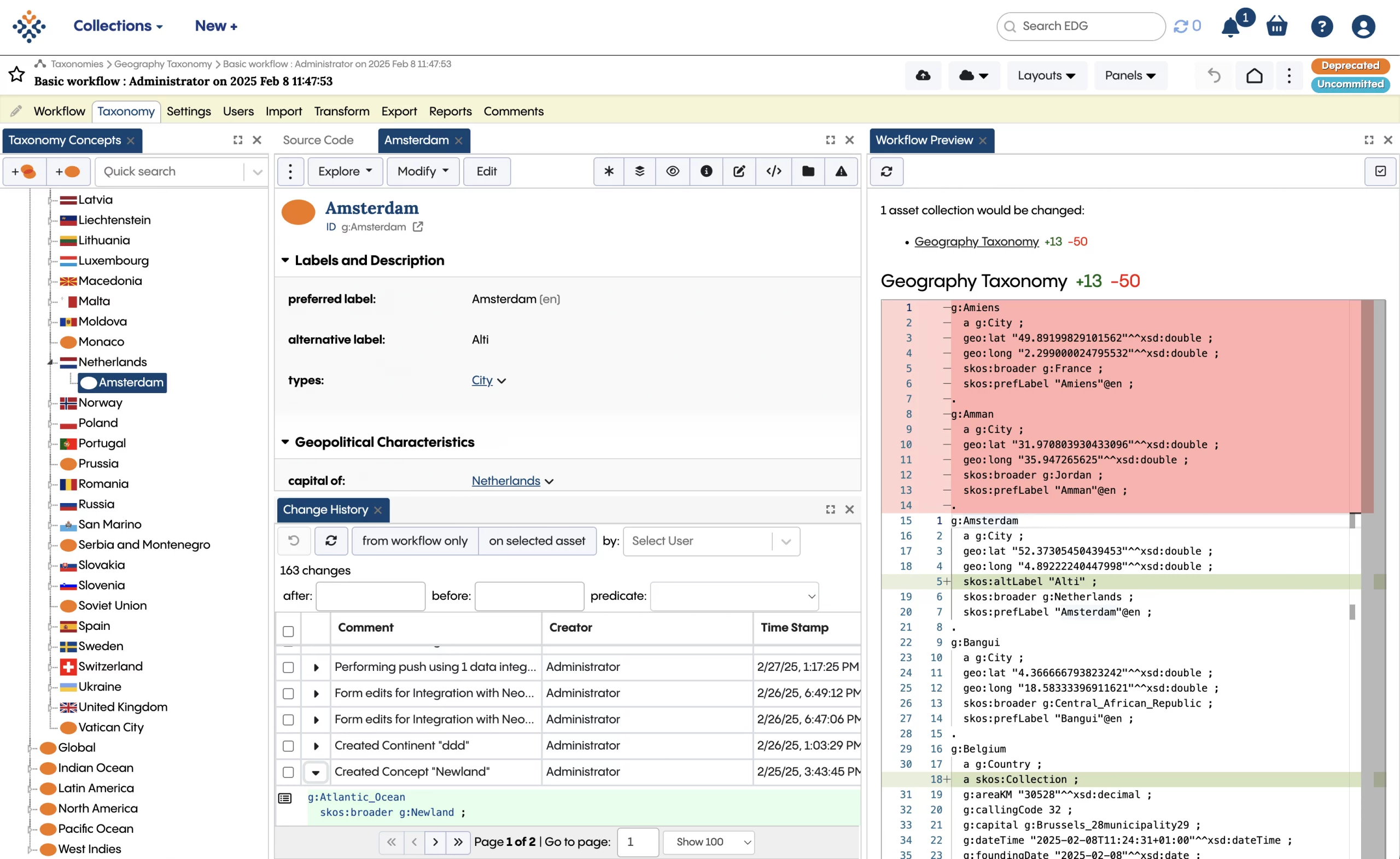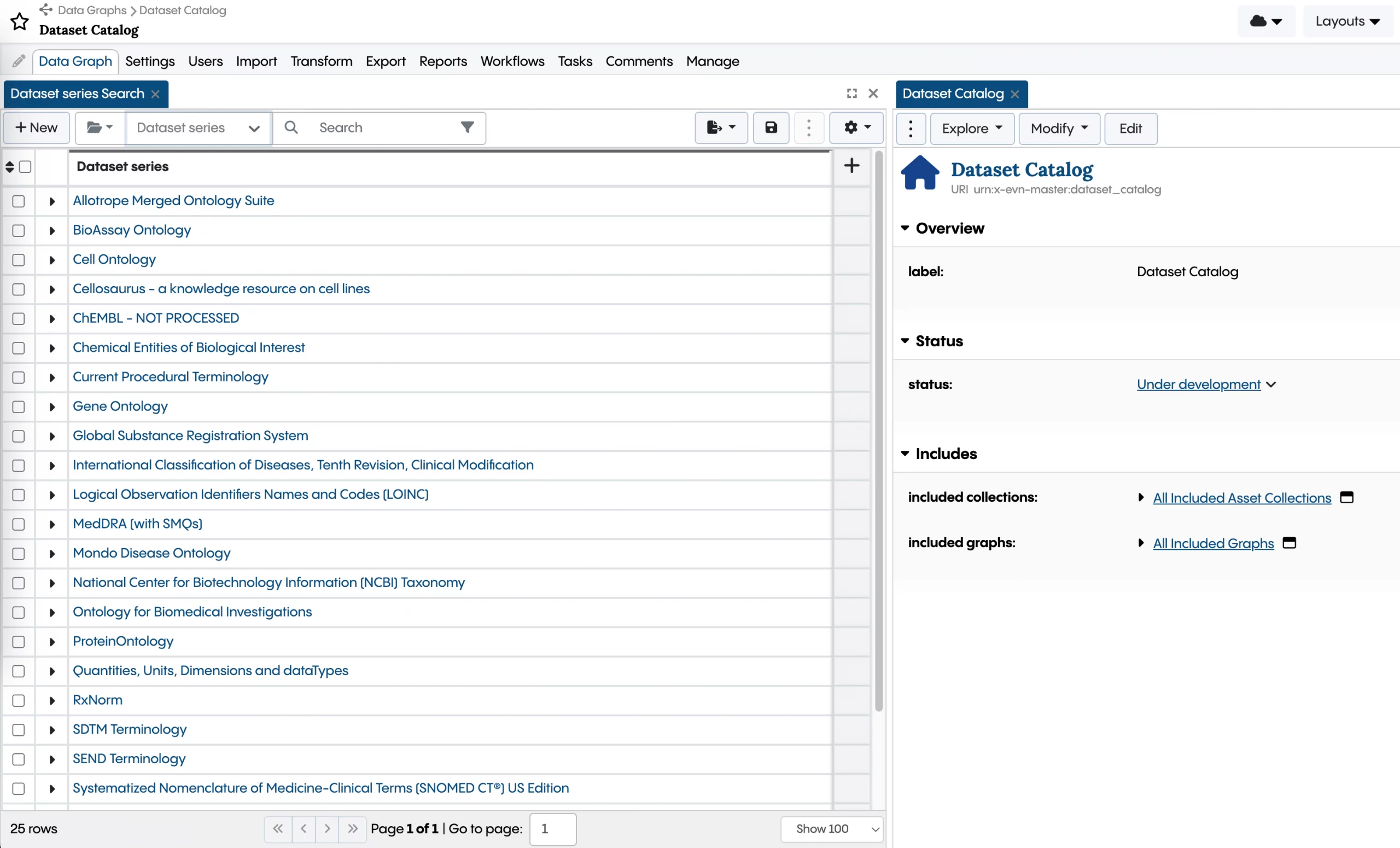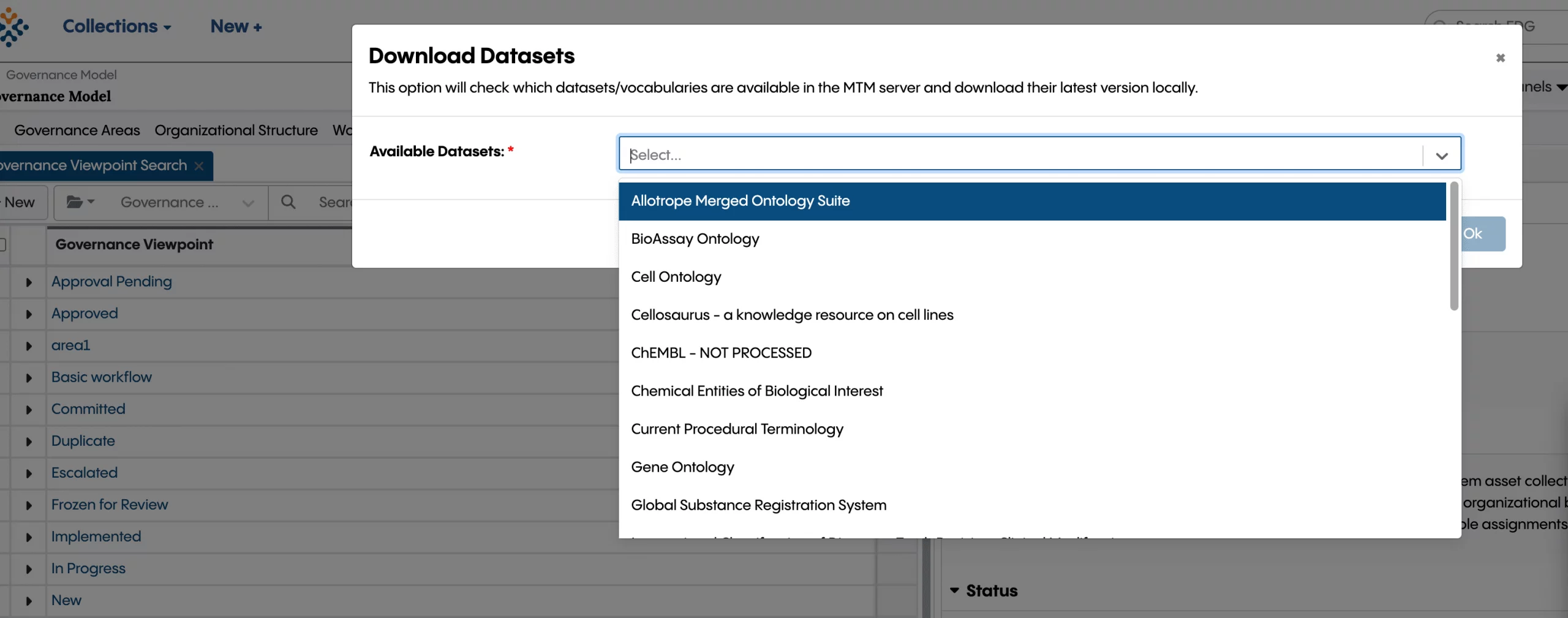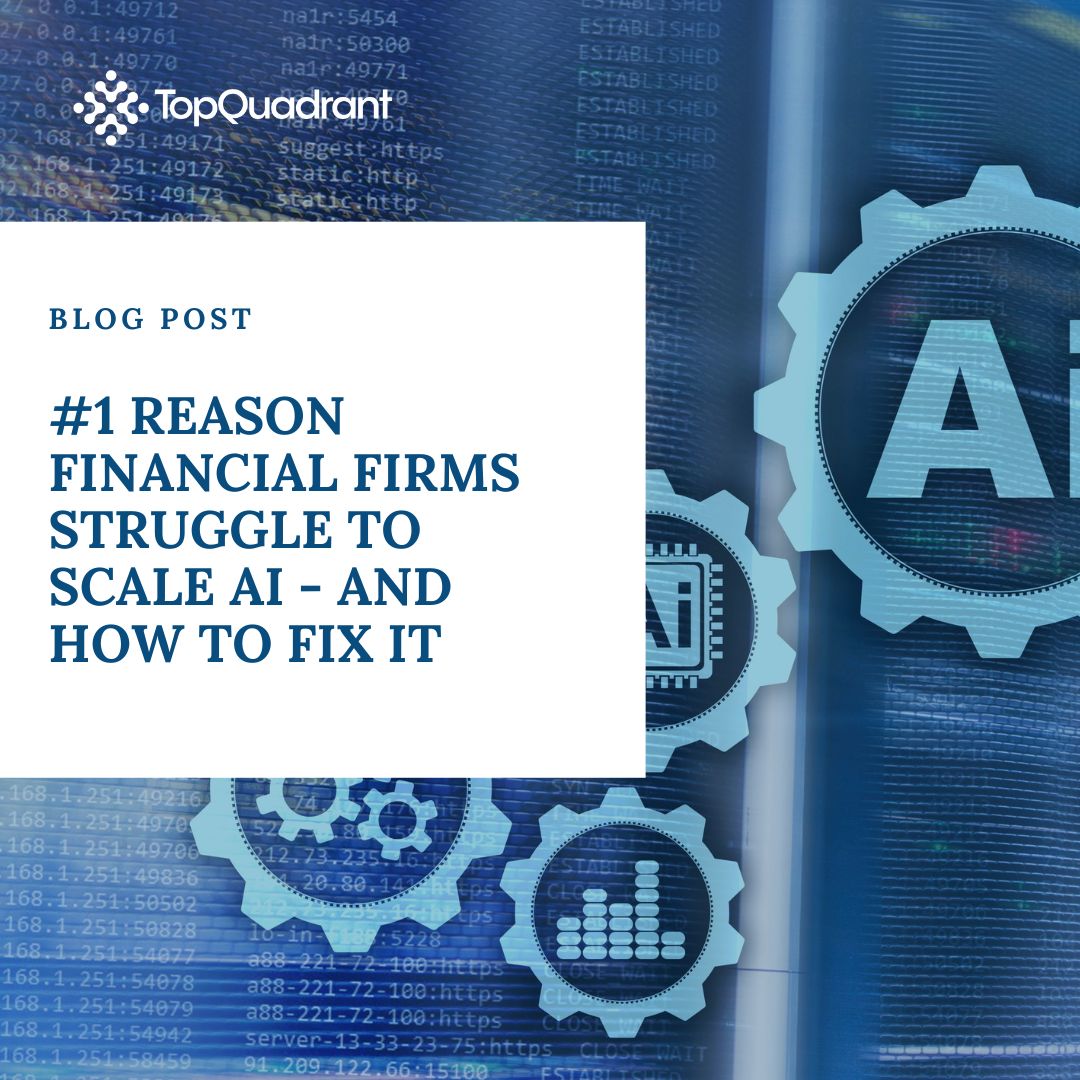Build Your AI-Ready Data Foundation
Streamlining complex data into AI-ready data foundations for the world's most important companies

Data Inconsistency Stalls Growth. Connect your data with TopBraid EDG
Built entirely on knowledge graph technology, TopBraid EDG creates a connected, AI-ready data foundation across structured and unstructured information.
Drive Real Business Impact with AI-Ready Data
Improve Recommendation Accuracy to increase user engagement
Deliver tailored content and data aligned to each user's needs.
Embed Policy Enforcement for painless compliance
Ensure compliance without bottlenecking operations.
Accelerate product development to get to market faster
Standardize cross-functional data to reduce downtime and speed up delivery.
Automate reporting and analytics to speed time to insight
Skip manual wrangling and generate high-fidelity insights, fast.
Ready to unlock AI-powered innovation?
Let’s show you how connected data can move your business forward.
Frequently Asked Questions
What is a Knowledge Graph?
A knowledge graph brings together facts, terms, and context in one flexible structure so teams can discover, understand, and use what their organization knows. This structure makes it easier to connect data across systems and uncover hidden relationships.
How does TopBraid EDG help make our data AI-ready?
TopBraid EDG prepares your data for AI by connecting structured and unstructured information, standardizing terms with taxonomies and glossaries, and enriching data with semantic models. It ensures that your data is consistently organized, governed, and trusted to drive AI initiatives and business analytics.
What types of data can TopQuadrant connect and govern?
TopQuadrant connects and governs structured data, unstructured content such as documents and notes, business glossaries, taxonomies, ontologies, metadata, and policies. It brings all critical data assets into a unified and governed knowledge graph to support enterprise innovation.
How does TopQuadrant support data governance and compliance?
TopQuadrant supports governance and compliance by creating clear policies that define how data is used, processed, and accessed. It enforces these policies across structured and unstructured information, improves data quality, ensures standards are followed, and provides full traceability for regulatory reporting
Who typically uses TopBraid EDG inside an organization?
TopBraid EDG is used by data stewards, data governance teams, information architects, taxonomy managers, compliance officers, knowledge managers, and business analysts. These users manage, standardize, and govern enterprise data to support business innovation and AI readiness.
How quickly can we get started with TopQuadrant?
Organizations can get started with TopQuadrant quickly. The platform is built on open standards and flexible models, allowing teams to begin connecting, governing, and using their data in a matter of weeks.
Can TopQuadrant integrate with our existing data infrastructure?
Yes. TopQuadrant integrates with existing data infrastructure by connecting to databases, content management systems, cloud platforms, spreadsheets, and APIs. It unifies diverse data sources into a single governed environment without requiring major system changes.
What makes TopQuadrant different from other data management platforms?
A: Built Entirely on Knowledge Graphs: Unlock deeper insights and relationships in your data. Open Source & Standards-Based: Avoid vendor lock-in with interoperable, future-proof architecture. Flexible & Extensible: Adapt quickly to business changes—no more breaking your model to evolve.
